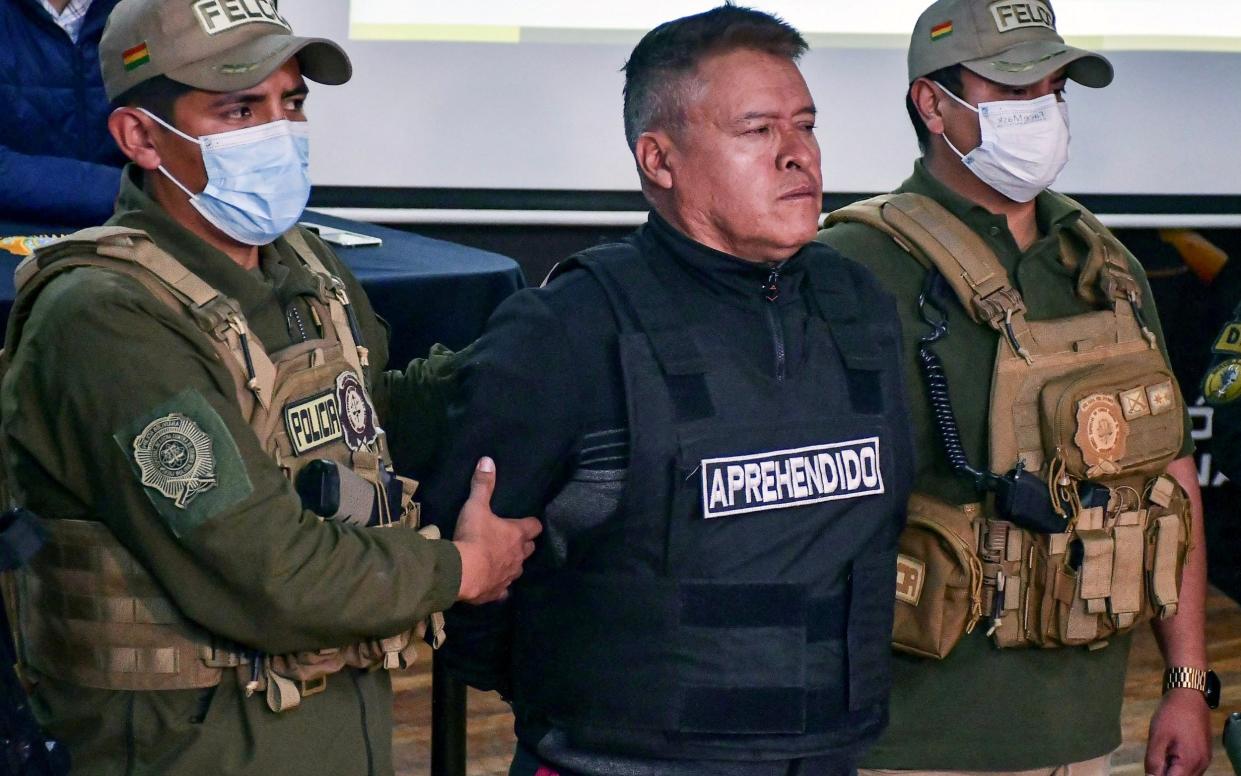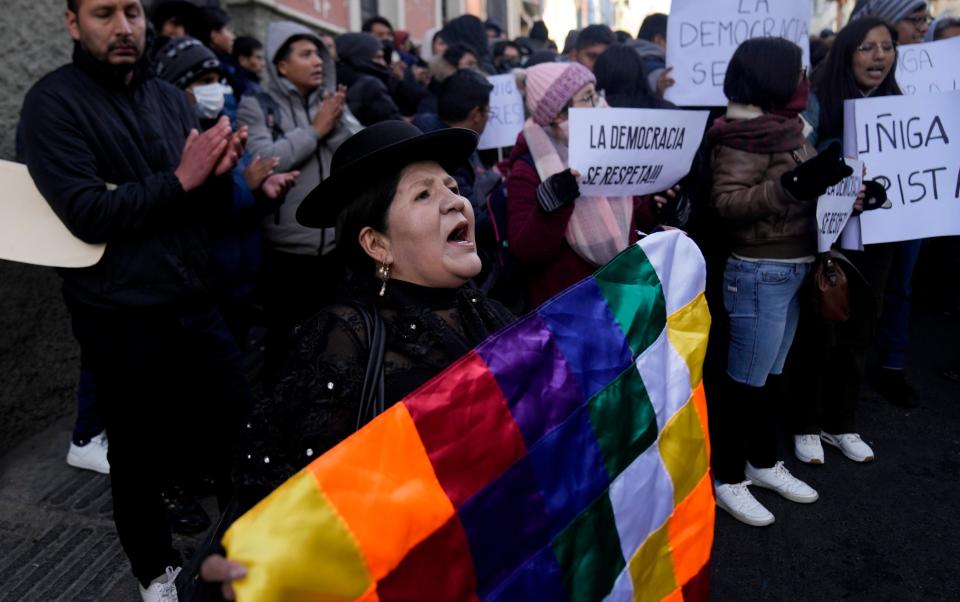Bolivian general paraded through the streets in handcuffs after failed coup

The general who led Wednesday’s failed coup attempt in Bolivia has been paraded in front of the cameras in handcuffs and a flak jacket with the word “detained” emblazoned on it.
Juan José Zuñiga’s public humiliation appeared to put a definitive end to the botched attempt to overthrow the impoverished Andean nation’s government.
He had led heavily armed troops and a personnel carrier as they smashed their way into the presidential palace in central La Paz hours after President Luis Arce had fired him from his role as head of the army for allegedly meddling in politics.
In a show of bravery, Mr Arce had physically squared off with the general inside the palace and ordered him and his men to respect “democracy” and return to their barracks.
Zuñiga was arrested shortly afterwards, apparently after more troops failed to support the military insurrection. Along with another dozen senior officers, he now faces up to 35 years in prison.

After his detention, the general, who has a checkered past including once being investigated for the disappearance of 2.7 million Bolivianos (£300,000) of public money, sought to blame Mr Arce, claiming the president had asked him to simulate a coup attempt to boost his flagging popularity.
That allegation was rubbished by justice minister Iván Lima, who said: “Zuñiga lies and is trying to justify a decision that is his alone and for which he will be held accountable by the justice system.”
Nevertheless, the failed rebellion highlights the troubled nature of Bolivian society and institutions. The country has had more coup attempts since 1945 than any other nation on earth, 38 in total, with 17 of them successful.
Meanwhile, the economy is stalling, racked by inflation, plummeting foreign currency reserves and dwindling gas exports on which Bolivia depends.
It was that grim scenario plus political infighting in the ruling Movement Towards Socialism party that led to Zuñiga attempting to take power by force.
But one positive outcome has been the near universal international condemnation of his actions, apparently showing that despite the global assault on democracies – however imperfect – by authoritarian populists and viral disinformation on social media, military coups, once commonplace in Latin America, now appear politically beyond the pale.

 Yahoo News
Yahoo News 
